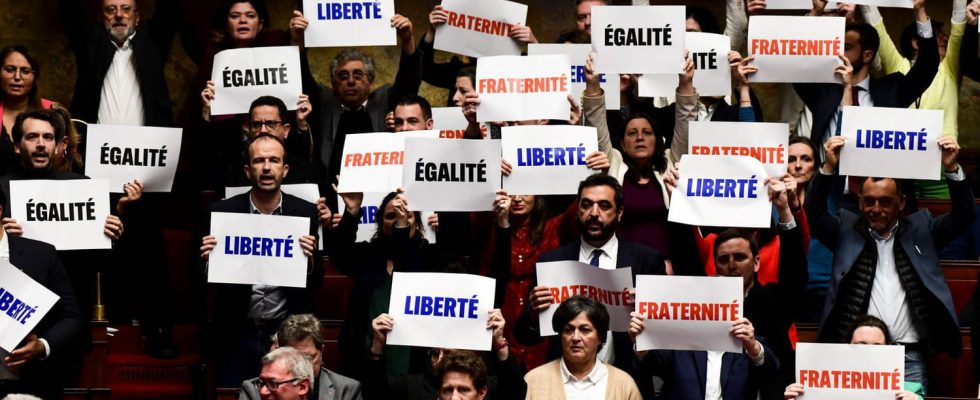The immigration law provides for the establishment of a deposit required from foreign students. Emmanuel Macron declared that this measure was not a “good idea”, Wednesday December 20, during an interview with “C à vous”.
If the immigration law was passed in Parliament on Tuesday, December 19, Emmanuel Macron indicated during an interview for the show C to you, Wednesday December 20 in the evening, that certain provisions did not make it “jump to the ceiling”. Among these, the deposit required from foreign students. “I don’t think it’s a good idea […] because I think we need to continue to attract students, talents from all over the world”, explained Emmanuel Macron. “Saying ‘because you are foreigners, we ask you for a deposit’, that is not the message from France […] it can be reworked”, assured the President. This measure aims to finance a possible “removal measure” after the end of their residence permit. The exact amount of the deposit is not yet known. Wednesday morning , Prime Minister Elisabeth Borne clarified that it could be “10 to 20 euros”, indicates BFMTV. Concretely, a sum must be deposited into a blocked account. It is intended to cover possible travel costs, explains The Parisian. This sum will then be returned to foreign students when they leave France.
University presidents and heads of major schools have criticized this measure. In a press release published Wednesday, December 20, France Universités deplores that the immigration law “comes to attack the values on which the French University is based: those of universalism, openness and welcome, freedom and fruitful circulation of knowledge, those of the spirit of the Enlightenment”. The university presidents added: “Access to knowledge and training cannot be hindered by such restrictive and unfounded financial considerations, such as the introduction of a return deposit or a limitation of social assistance. International students are an asset to our country, and contribute to the dynamism of our academic community.”
The world reports that the Minister of Education, Sylvie Retailleau, indicated to Elisabeth Borne that the text did not conform either to her vision of society, nor to what she considers desirable and defensible for higher education and research . However, his entourage did not want to comment on a possible resignation.
